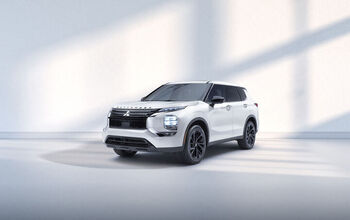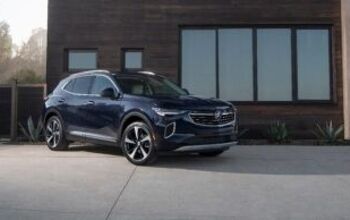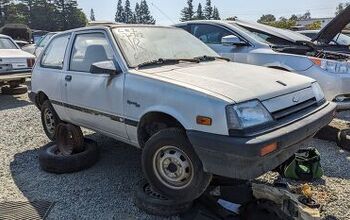QOTD: What to Do With Mini?

It’s a brand most of us never think about. We never consider buying one, nor do we rush to our laptops/tablets/phones to excitedly discuss the latest update to the brand’s lineup. Simply put, there’s something about the brand that’s lacking.
Maybe it’s horsepower, or lack thereof. Or maybe it’s reliability. Whatever the reason, Mini is not — with some exceptions — at the forefront of our collective consciousness.
It’s a brand that tries hard to remain relevant, especially over here in Crossoverland. Hey, four doors on a Cooper! Look — a longer Clubman! Excuse me, sir, can we interest you in a considerably larger Countryman? Nothing Mini about it, har har…
And yet, for all of its attempts to stay in the buying public’s eye — culling unpopular models like the Paceman and “right-sizing” its current products — Mini’s U.S. sales are still heading in the wrong direction after reaching a 2013 peak. That year saw the brand unload 66,502 units, a clear high-water mark. Last year? 52,030. The first four months of 2017 shows sales slipping behind last year’s tally.
The brand needs to do something to slow the descent, but — as we learned yesterday — it won’t field any new models for a number of years.
The question is: would adding new models have even helped? Mini executives apparently felt it wouldn’t. Otherwise, the anticipated sedan, roadster and micro-Mini two-seater wouldn’t be collecting dust as the brand waits for the next-generation of vehicles. Only then, perhaps, will we see a new model.
The problem with Mini isn’t murky. It’s a nostalgic brand centered around small cars that hobbled into a truck and SUV-obsessed marketplace with a clear handicap. Due to concerns over brand identity, it can’t build you a midsize or full-size truck. Nor can it compete against the Ford Explorer. It could, of course, but it would have to kiss that identity goodbye. And really, who’s going to buy a British truck?
Is the BMW-owned automaker destined to forever remain a niche brand in the U.S.? A quirky expression of the buyer’s individuality? Maybe.
So what would you do, Best and Brightest, if you found your hands on the levers of change at Mini? Would you be content in having the core models languish? Would you green-light a slew of quirky, sporty new small car models, or would you go big — maybe approving the unthinkable?
Or, would you pull that other lever, lowering the coffin containing the brand into the ground forever?
[Image: Mini]

More by Steph Willems
Latest Car Reviews
Read moreLatest Product Reviews
Read moreRecent Comments
- VoGhost Interesting comments. Back in reality, AV is already here, and the experience to date has been that AV is far safer than most drivers. But I guess your "news" didn't tell you that, for some reason.
- Doc423 Come try to take it, Pal. Environmental Whacko.
- 28-Cars-Later Mazda despite attractive styling has resale issues - 'Yota is always the answer.
- 28-Cars-Later Try again.
- Doc423 It's a flat turn, not banked, which makes it more difficult to negotiate, especially if you're travelling a little too fast.


































Comments
Join the conversation
Well, Mini is not so Mini any more. So are most people that try to squeeze themselves into BMW's smallest car. The first New Mini looked nice, particularly since only the young and lean would fit into that one. Since then BMW has tried way too hard to bring the Mini to more customers, and it became bloated beyond brand recognition.
I bought a British truck . . .